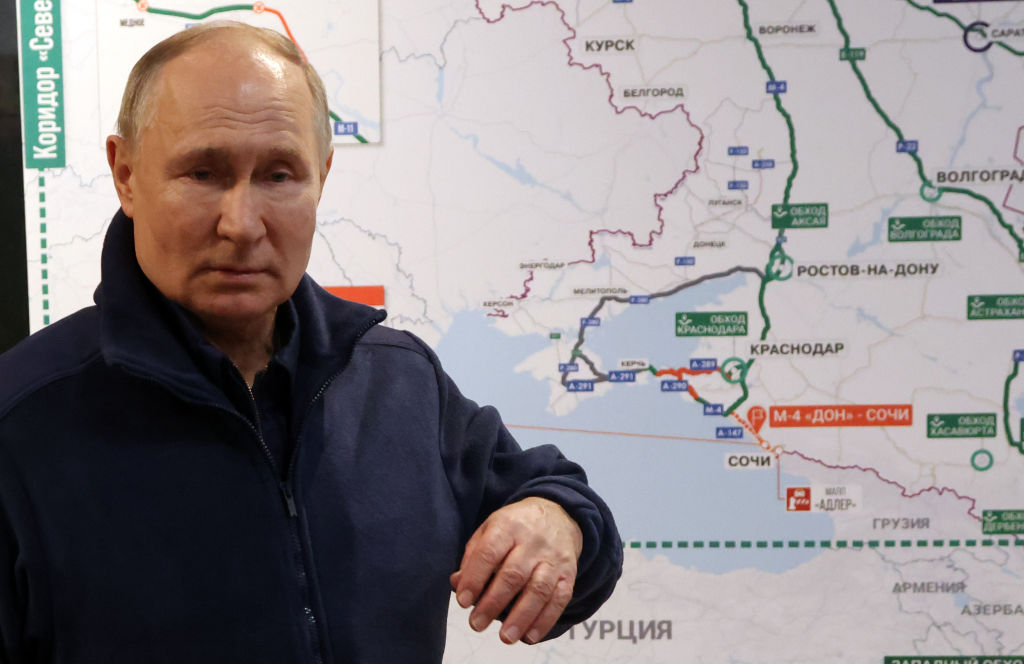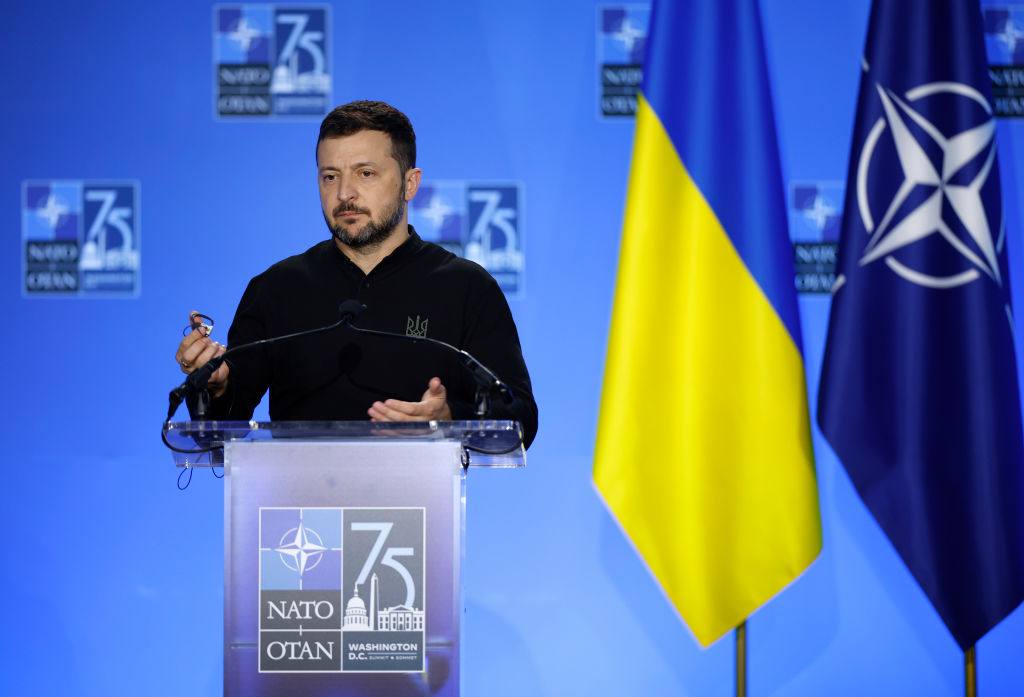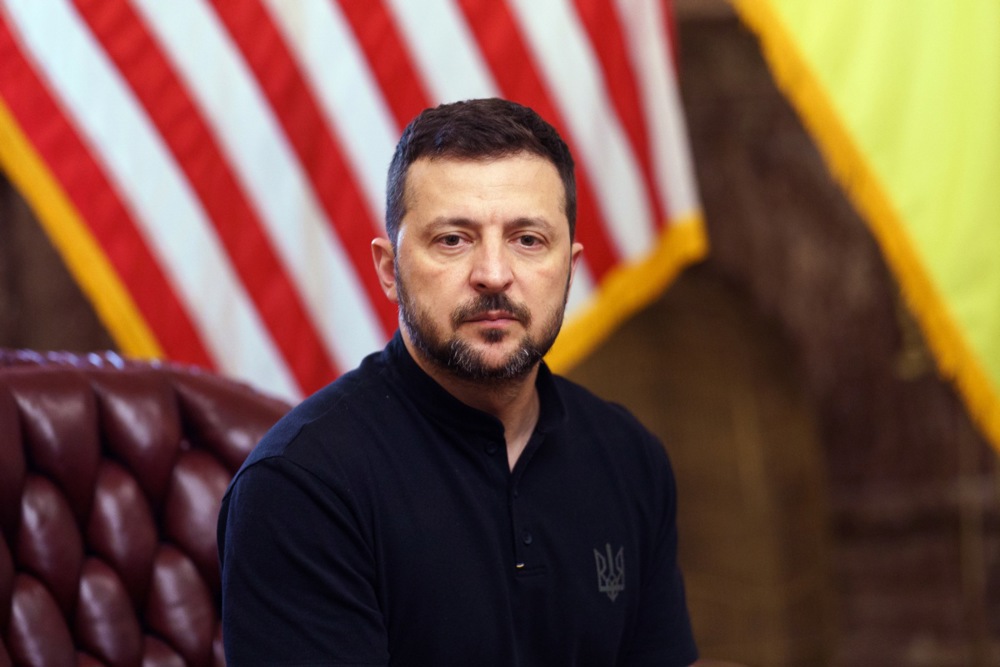In the first eight months of 2024, 45,543 soldiers deserted from the Ukrainian army, according to data leaked by the Prosecutor General’s Office and subsequenly reported in the Ukrainian press.
This number represented over half of the 81,167 desertions recorded since 2022. However, military sources consulted by media outlets Hromadske and LB suggested the true figure was at least 100,000, or equivalent to approximately 10 per cent of all Ukrainian Armed Forces personnel.
Alongside desertions, widespread corruption in the enlistment system also allowed some men to avoid enlistment by paying bribes of several thousand euros.
Several viral videos have shown groups of soldiers storming into public meetings to forcibly remove men to the front, often accompanied by scuffles and insults.
Ukrainian authorities differentiate between voluntary demobilisation and desertion.
The majority of cases, 66 per cent, fall into the former category. These soldiers took advantage of a leave of absence not to return to their unit, and cited personal obligations, negligence in their regiment, or errors in enlistment documents.
Deserters, on the other hand, are considered to have disappeared permanently without justification. Both cases are considered crimes and could be punished with prison sentences of between five and twelve years. However, the magnitude of the problem led Ukraine’s parliament to pass a law on August 20 allowing deserters to re-join the army after a first warning without facing charges.
Ukrainian MP Fedir Venislavskii acknowledged the seriousness of the situation in an October 13 interview with the radio station NV. “It is very difficult, we cannot ignore it. That’s why we have been discussing it for a long time with the General Staff and the Ministry of Defence,” he said.
Some claim that the actual number of deserters is much higher than officially reported, as some commanders choose not to report it, either to avoid problems or out of camaraderie.
Discontent within Ukraine’s army increased in April 2024 when a new mobilisation law was passed.
Many volunteer fighters, who hoped to be demobilised after serving for three years, were bitterly disappointed when the government and the General Staff ruled out that possibility.
The government and army argued the country could not afford to lose experienced soldiers in the middle of a war.

Desperate to find new recruits, Kiev banned issuing passports abroad and is seeking ways to work with countries hosting Ukrainian refugees to force men abroad to return home to enlist.
For its part, Russia not only has a larger population to recruit, but also employs more drastic methods to prevent defection.
These have included summary executions, documented in videos recorded by Ukrainian drones.
Burnout among Ukrainian soldiers, many of them civilians who enlisted following the Russian invasion, is compounded by a lack of training and weaponry to deal with the Russian advance.
President Volodymyr Zelensky has acknowledged these morale problems on recent visits to the US and Europe, where he suggested the war could be over by 2025.
On October 13, Germany’s Der Spiegel revealed Kiev is considering options for ending the war which could include temporarily suspending the goal of restoring Ukraine’s full territorial integrity, according to a senior official close to the government.
Currently, more than 20 per cent of Ukrainian territory remains under Russian occupation.
One pillar of Zelensky’s peace proposal involves the full liberation of all occupied territories, and Kiev has reiterated on numerous occasions it is not willing to make territorial concessions to Moscow.
However, the official quoted by Der Spiegel noted that “serious talks” are underway about the possibility of abandoning this goal.
“We believed that victory meant the unconditional surrender of Putin’s Russia,” he said, adding that this “was the wrong view of victory” and a peace deal would require concessions.
Among the factors pushing Kiev to reconsider its territorial objectives are the increasingly rapid advance of Russian troops in eastern Ukraine and uncertainty over the US presidential election, according to the same source.
Polish foreign minister Radosław Sikorski has asked Ukraine to pay Polish victims of the Second World War Volhynia massacre the same respect it has paid to Germany whose fallen Wehrmacht soldiers have been exhumed in Ukraine. https://t.co/7I5DbppqUv
— Brussels Signal (@brusselssignal) October 15, 2024





